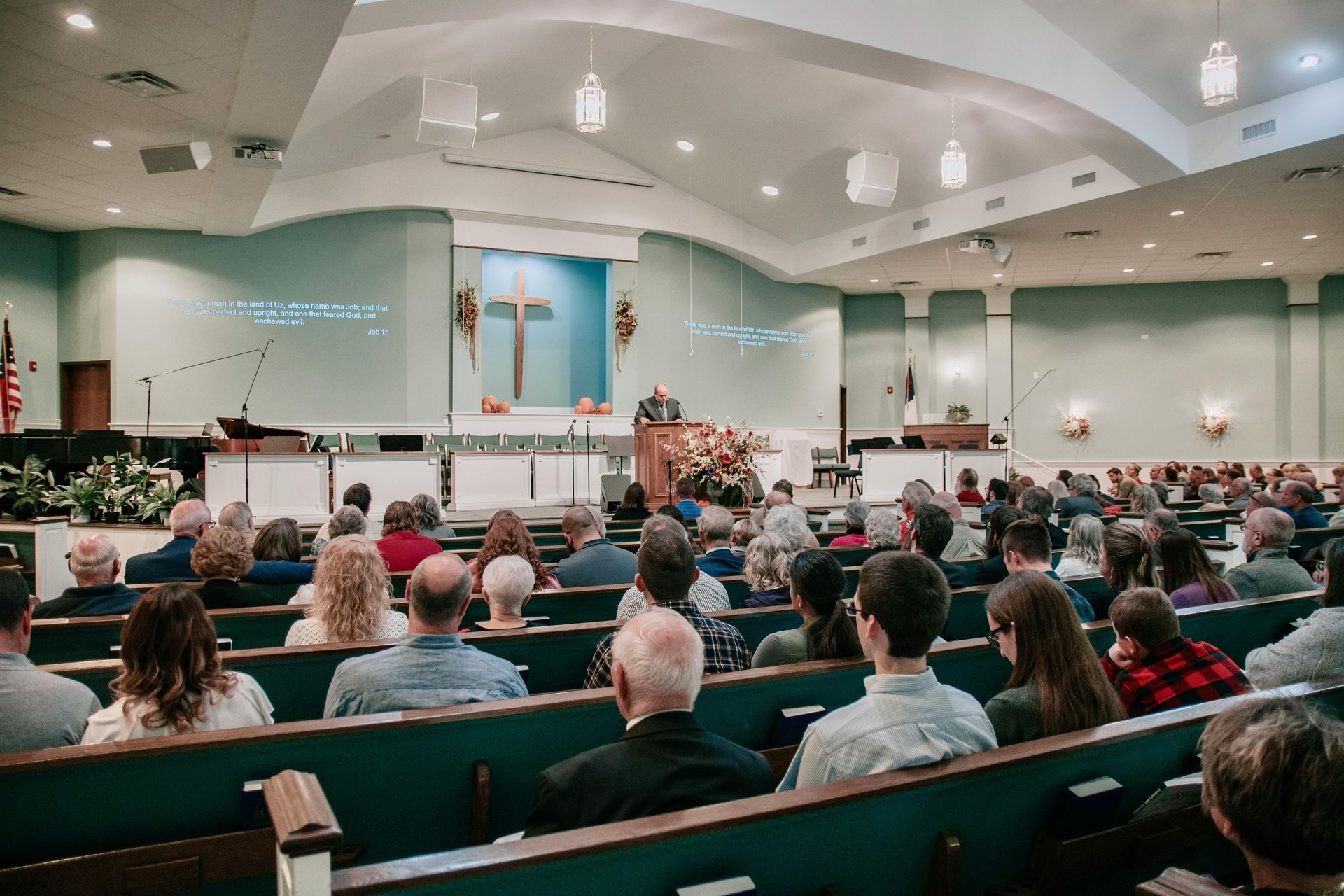5 Reasons to Preach 20 Minutes or Less
Are Your Sunday Messages Unnecessarily Long?
I'll start off by admitting I used to be on the other side of this "debate." I thought 15 minute sermons were a sign of a watered-down, seeker friendly, consumer-driven church that didn't take the Word seriously (young, idealistic Joseph!).
But over the years I've changed my mind and my approach. I now cringe a bit at my 45 minute (or longer!) messages from when I first started started regularly preaching Sunday mornings.
In an article from a few years ago, Mark Buchanan (who once regularly preached on Vancouver Island where I now reside) reflects on his many years of preaching. After nearly a decade away from a regular pulpit, he offers what corrections he would make if he could go back. And his first lesson learned is this:
"Many of my sermons were too long"
Mark Buchanan
Although he doesn't say it, his next three lessons learned also relate to preaching too long.
I agree with Buchanan and therefore offer here my own . . .
5 Reasons to Preach Shorter Sermons
1. Preaching is Not About Me
When I hear a 40 minute sermon, I can usually quickly identify 20 minutes of the message that were unnecessary and mostly about drawing attention to the speaker rather than Christ or the Word (think funny stories that are unrelated to the message or tangents that distract from the main point).
My first drafts of sermons are usually 35-40 minutes long because I tend to think I'm pretty important and have a lot of important things to say, neither of which are true!
When I then go through the editing process, most of the material that gets cut is stuff that really was more about me. Stories that would be fun to tell (but don't really add much), insights that show how smart I am but that no one will care about, or hobby horses that I like to talk about but aren't that relevant to the topic.
Forcing myself to a 20 minute message (which I often fail to do BTW, see below) eliminates a lot of the "me" from the message.
2. Make Time for Other Ways of Worship
This actually has a lot of connection with reason #1 above. Many preachers think their message is by far the most important part of a service or the most formational practice in the church. Sometimes it is, but certainly not always.
Preaching shorter messages allows time in the service to make room for other means of grace or ways God transforms people.
Music obviously is one (we've all been to a service where the music serves one main purpose: to get to the message!).
But here's a few other ways of worship that we practice and make time for at our church:
1) Times of listening. Almost every week we take time in our service to simply listen to what God might be saying. No prayers, no singing (but yes, soft instrumental music by the band like any good Pentecostal church!), just listening.
It's amazing what comes out of these times: people begin weeping, receive a Word from the Lord, feel the presence of God in a way they haven't before, or finally feel rest for their weary souls.
2) Make time to operate in the gifts of the Spirit. This is related to times of listening but not restricted to that. If you expect the spiritual gifts to be in operation, you have to be willing to make some time. I'll perhaps share more on how we do this in a future post, but feel free to contact me!
3) Hear from others in the congregation. We've done this in a number a ways over the years. We used to do live interviews on the platform with a member of the congregation, mostly featuring where they feel "God at Work" in their work and vocation.
We've now transitioned into video interviews called "Know Your Church."
4) Fellowship time. Truth is people stay longer after the service if your services are shorter. Like it or not, if you value those lobby connections and conversations, you'll preach a little shorter.
5) Response Time. Hearing the Word is only half the story of preaching. We must make time to respond to what the Spirit is saying through the text. Sometimes we post reflection questions on the screen after the message and leave time for people to journal, pray, read through the morning's Scripture again, and just respond in communion with the Spirit.
6) Lord's Supper. Related to the above, we almost always do Communion at the end of the service (after the preaching), and so want to leave space for unhurried time at the Table together.
7) SOAK time. Lastly, once a month we have our "Second Sunday Soak" which is an extended time of enjoying God's presence in worship, prayer, and reflection. To leave time for that (especially with multiple services), the message has to be short!
3. Simplify the Takeaway
As Buchanan says, "Many of my sermons were about too many things." Long messages tend to overwhelm people and make it hard to locate that "One Big Thing" you're trying to get across.
Shortening my messages forces me to ask the question "What do I want people to take away from this message?" and eliminates material that doesn't help answer that question.
4. Improve Your Delivery and Memorization
If you practice and rehearse your messages (and I hope you do), you'll know familiarizing yourself with 20 minutes of material is easier than 40!
A shorter message improves my delivery because I can memorize more of the material. This means I can often come off the platform (away from my manuscript) and connect more intimately with the congregation down close.
Leaving your notes and changing your location helps keep people more engaged (even if they still try to avoid eye contact with you!).
5. Save Energy and Mental Margin for Other Ministry
I'm being ultra practical here and this may not matter to some. But, if like me, you're majorly introverted and/or suffer from low energy or occasional exhaustion, shorter messages may help you be a better pastor (and last longer in ministry).
It's simply less energy expended (and perhaps wasted energy if you agree with point #1 above) that you can use to better care for people. If I preach shorter, I have a little more energy and margin to pray for people, chat in the lobby, write down notes after the service of people to follow up with, encourage staff, etc.
I wish I was full of energy!
I wish I was fully of energy. And I certainly pray for and do feel God's energy (energeia) working (energeo) in me mightily (Colossians 1:29). But susceptibility to depression, burnout, "crashing," or whatever you want to call it is my thorn in the flesh, and I have to be realistic about how much energy I can exert.
There are more reasons, but I don't want a post about shorter messages to be too long!
So now time for confession.
I don't always hit my goal of 18-20 minute messages. I do think sometimes that's okay. Occasionally you come to very complex topics or texts that truly do require a little more time.
Also, it's true that writing a short message is actually more work and takes longer than writing a long message.
I usually have way more material than I need. If I could leave it at 45 minutes, I'd finish my sermon way earlier in the week. Editing takes time and patience. Occasionally I just run out of time and energy and have to leave it at 23-25 minutes because there's other pressing things to do in the week.
But I believe for the most part shorter sermons are more beneficial for all involved.
RELATED POSTS:
"Should We Use AI to Write Sermons?"
"3 Questions to Ask About Our Preaching"
NEWSLETTER SIGNUP (blog post layout)
ABOUT JOSEPH
Pastor, Author, and sometimes pretends to be a scholar
Joseph (PhD, University of Birmingham) is the author of The Pentecostal Gender Paradox: Eschatology and the Search for Equality.
Since 2015, he and his wife have together pastored Oceanside Community Church on Vancouver Island, where they live with their four children.










